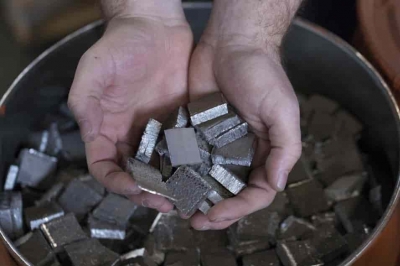

India Tanzania partnership to strengthen as New Delhi looks to achieve mineral security
As New Delhi looks to increase its investments and economic engagements in Africa, a host of Indian companies could be now be looking at Tanzania’s mining sector, which is relatively untapped. The country has abundant reserves of uranium, copper, nickel and coal besides various other industrial minerals such as soda, kaolin, tin, gypsum, phosphate among others. Amid the shift in geopolitical contours and energy transition, mineral security will be key for New Delhi, imports most of the critical minerals.
Tanzania’s mineral exploration has increased substantially in recent years, Innovation News Network said, adding that the sector is attracting new foreign investment. This provides a ready opportunity to India to tap the East Afrina nation for critical minerals and rare earth. The Khanij Bidesh India Ltd, a joint venture between National Aluminium Company Ltd.(NALCO), Hindustan Copper Ltd.(HCL) and Mineral Exploration Company Ltd. (MECL), set up in 2019 on the lines of ONGC Videsh Limited, has started looking at possible untapped markets
Tanzania’s President Samia Suluhu Hassan’s four day trip to India has, therefore, been crucial. Apart from holding talks with President Droupadi Murmi and Prime Minister Narendra Modi, she met captains of the industry and business leaders, seeking investments. By 2025, Tanzania is hoping to draw $3 billion of foreign direct investment annually from India.
At a time when India is aggressively looking to expand its businesses and investments in the continent, Hassan’s visit has provided a further boost.
A study in 2021 revealed that the country has discoveries of 24 minerals categorised as ‘critical’, Moses Kulaba, East Africa Regional Manager for the Natural Resource Governance Institute (NRGI) told the news organisation.
According to data portal Statista, mining and quarrying accounted for roughly 7 per cent of the Tanzania GDP in 2020.
The Tanzania Investment Centre (TIC) and Zanzibar Investment Promotion Agency (ZIPA) have already established a special desk for India to facilitate inflow of investments.
As the global demand for minerals and metals rise, Africa and other countries which have huge reserves need to prepare to increase supplies as well. About 30 per cent of the world’s critical mineral reserves are found in Africa.
For India, mineral security will be key as it aims to touch the $5 trillion economy. The Centre’s push for electric vehicles (EVs) and batteries as part of the exercise to transition to clean energy and the production linked Incentive (PLI) scheme are expected to drive demand for critical minerals.
India, which is now positioning itself as a credible global manufacturing hub, will need to ensure a steady supply chain for critical minerals and rare earth elements.
Even as the Geological Survey of India has indicated that India has substantial lithium reserves in Jammu and Kashmir and Rajasthan to move towards self sufficiency will take time.
Also read: India-Tanzania reboot showcases Modi’s post Covid re-engagement with Global South
Union Minister of Coal and Mines G Kishan Reddy on Tuesday held an inter-ministerial meeting…
India's largest automobile in-plant railway siding at Maruti Suzuki's Manesar facility started operation on Tuesday,…
Google on Tuesday unveiled its Safety Charter for India's AI-led transformation, at the "Safer with…
The human rights organisation of the Baloch National Movement (BNM), Paank, has published its most…
The Israel Defence Forces (IDF) on Tuesday claimed that it has killed Iran's senior-most military…
Amid escalating conflict between Iran and Israel, the Ministry of External Affairs (MEA) on Tuesday…